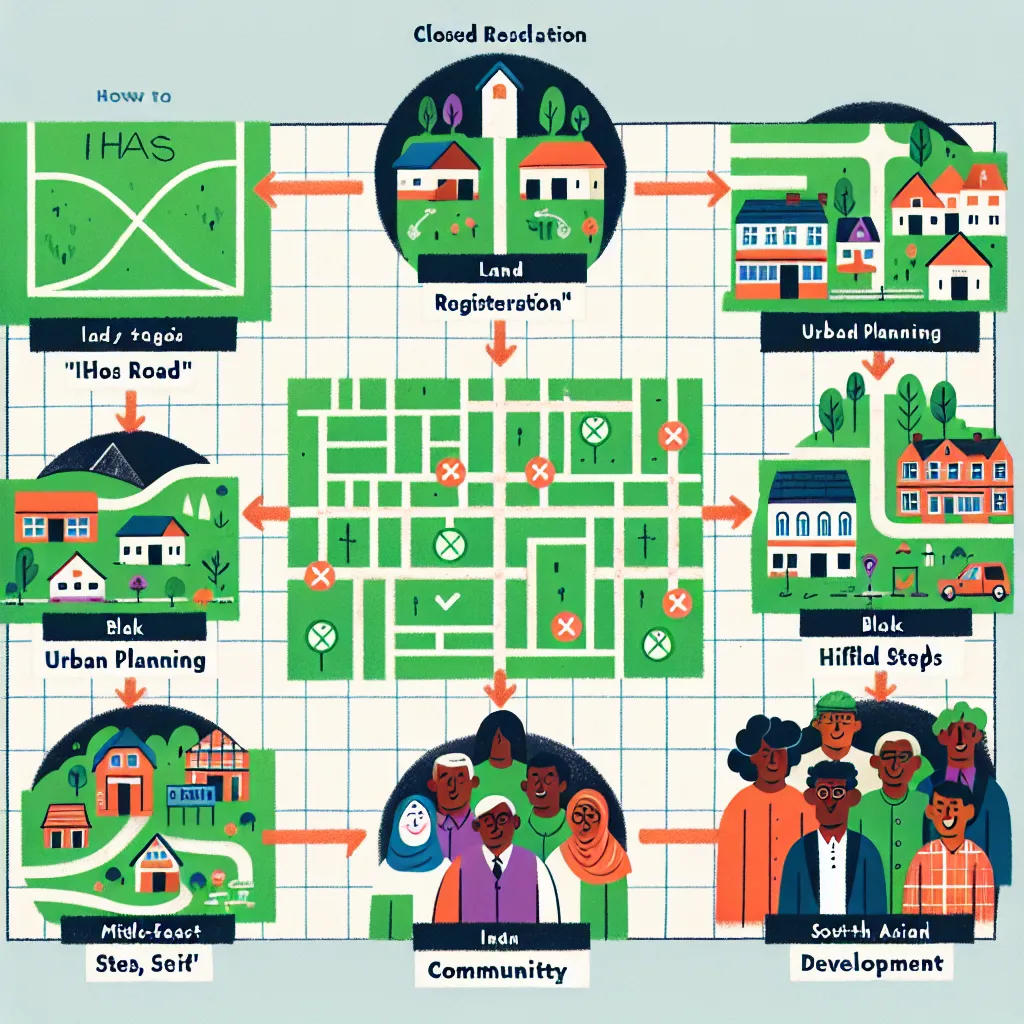In Turkey, the term “ihdas” might initially seem like a complex legal jargon, but it holds a significant place in the real estate sector. Originating from Arabic, ihdas translates to “creating” or “bringing forth something new.” Within the realm of property law, ihdas refers to the registration of previously unregistered land, often resulting from the closure of roads. But how does this process unfold, and why does it matter to property owners and developers alike?

What is İhdas?
Ihdas, in the context of Turkish property law, involves the transformation of non-registrable land into a new property asset through official registration. This process is particularly relevant when roads are closed, and the land they occupied becomes available for registration. In simple terms, ihdas allows for the integration of these lands into the formal property market.
Key Elements of İhdas
- Legal Framework: Governed by the Turkish Civil Code and Tapu Kanunu (Land Registry Law), ihdas provides a structured approach to registering land previously deemed non-registrable.
- Applicable Areas: Primarily concerns roads that have been closed or sections of roads that remain unutilized.
- Outcome: Once registered, these lands can be developed, sold, or used as collateral, unlocking their economic potential.
The İhdas Process: How Does It Work?
The ihdas process is meticulous, ensuring that all legal and procedural aspects are observed. Here’s a simplified breakdown:
- Identification of Land: The process begins with identifying land that qualifies for ihdas, typically involving closed roads or unused road segments.
- Preparation of İhdas Maps: These maps detail the specific area to be registered, outlining boundaries and relevant geographical markers.
- Municipal and Cadastre Approval: The ihdas maps must be approved by local municipal authorities and the cadastre for accuracy and legitimacy.
- Registration: Once approved, the land is officially registered under the municipality or relevant authority’s name, completing the ihdas process.
Who Benefits from İhdas?
The ihdas process offers several benefits, not just for local authorities but also for private property owners and developers.
- Government: Enhances land management and urban planning, optimizing land use.
- Property Developers: Provides new opportunities for development in urban and suburban areas.
- Local Communities: Can lead to improved infrastructure and community facilities when integrated into urban planning.
Table: İhdas Benefits at a Glance
| Stakeholder | Benefits |
|---|---|
| Government | Improved land management and urban planning |
| Property Developers | New development opportunities |
| Local Communities | Enhanced infrastructure and facilities |
Challenges and Considerations
While ihdas presents opportunities, it also comes with challenges:
- Legal Complexities: Navigating the legal requirements can be daunting without expert guidance.
- Community Impact: Changes in land use can affect local communities, requiring careful planning and communication.
- Environmental Concerns: Ensuring that ihdas does not negatively impact local ecosystems is crucial.
The Role of AnySqft
In the modern real estate landscape, platforms like AnySqft are revolutionizing how property transactions are conducted. By leveraging AI-driven insights, AnySqft simplifies processes like ihdas, providing expert guidance and efficient solutions tailored to individual needs. This technological approach ensures transparency and ease, enhancing the overall real estate experience.
Conclusion
Understanding and navigating the ihdas process is essential for anyone involved in Turkey’s real estate market. By transforming previously non-registrable land into valuable property assets, ihdas plays a critical role in shaping the urban landscape. With the right tools and expertise, stakeholders can maximize the benefits of ihdas, contributing to a more dynamic and efficient real estate sector.
İhdas Ne Demek?
İhdas refers to the process of officially registering land that was previously non-registrable, typically due to road closures. Here are key points to understand:
- Definition: The transformation of unused land into registered property.
- Legal Basis: Governed by Turkish property laws.
- Benefits:
- Enhances Land Use: Optimizes urban planning.
- Unlocks Property Value: Offers new development opportunities.
For those navigating this complex process, AnySqft provides expert guidance and innovative solutions to ensure a seamless experience. Unlock the potential of your property today! Explore AnySqft.